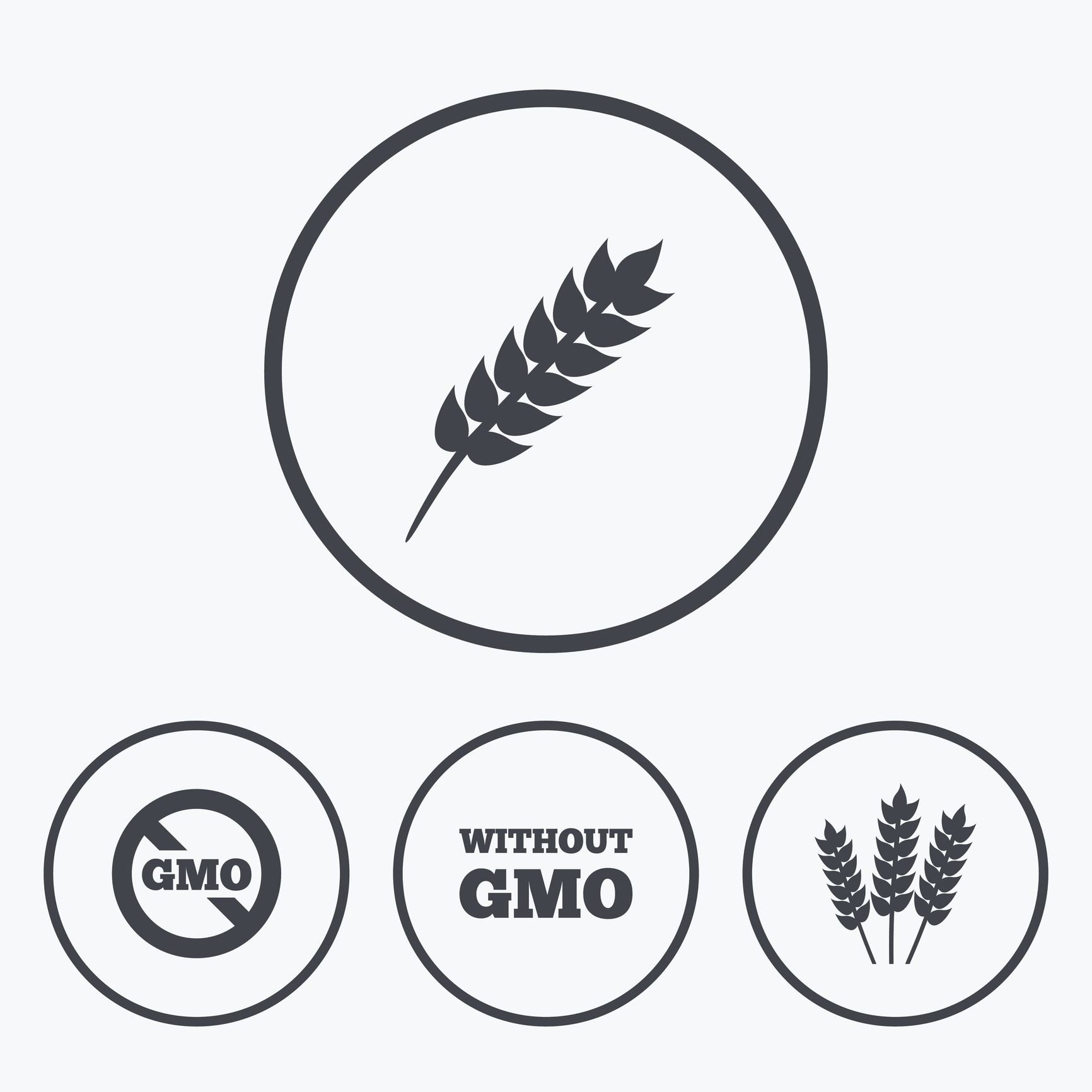By Rob Verkerk PhD, founder, executive and scientific director
A report by the Royal Society was released this week in an attempt to settle the UK public’s discomfort about GM foods and put pressure on those EU countries that have bans on GM cultivation. Yet, rather than engaging with the scientific controversies directly, the Royal Society’s response, delivered in Q & A format, reads like a biotech industry propaganda statement.
Following are among the most important issues omitted from the Royal Society's 2016 report:
 38 countries have banned GMOs
38 countries have banned GMOs
- There is no scientific consensus on safety. The implication of the document is there is scientific consensus that GM crops are safe. The report fails to make mention that over 300 scientists have signed a statement in a peer-reviewed journal indicating there is “no scientific consensus on GMO safety” given the conflicting and limited independent research available.
- Thirty eight countries have banned GMOs. The report does not mention that 38 countries worldwide have seen fit to impose bans on GM cultivation.
- Case by case risk assessment required by international agreement. The Royal Society supports case by case safety assessment, but does not allude to this being a requirement to which the UK and EU are bound through them being signatories to the Cartagena Protocol on Biosafety to the Convention on Biological Diversity which in turn recognises the risks posed by GM crops to biodiversity and the environment.
- Superweed risks whitewashed. The term ‘superweed’ does not appear in the report despite it being well understood by the public, to which the report is directed, as well as it being linked to increased use of glyphosate-based herbicides in GM crops. A search for “superweeds gm” in Google, for example, brings up nearly 80,000 hits at the time of writing. The Royal Society report recognises that genetic drift might occur, but it doesn’t state that is has occurred and it doesn’t consider the ecological, human health or agronomic impacts of this. It states simply “…herbicide resistant weeds could be produced if a herbicide tolerant crop, GM or non-GM, were to breed with weedy relatives. Their offspring might be resistant to the herbicide if they inherit the tolerance gene from the crop. Other herbicides would then have to be used to control these weeds.” In reality, ‘superweeds’ have now been found in “18 countries worldwide, with significant impacts in Brazil, Australia, Argentina and Paraguay”.
 Pesticide-dependent monoculture: the anathema to biodiversity
Pesticide-dependent monoculture: the anathema to biodiversity
- Risks over pesticides associated with GM crops. There is no attempt to even broach the debate over glyphosate-based herbicides (e.g. Roundup), which are now the world’s most common group of pesticides. This is despite the World Health Organization’s recent classification of glyphosate as ‘probably carcinogenic to humans’; its now apparently ubiquitous distribution in the human food supply, breast milk and the environment; evidence of its very low dose toxicity (especially liver and kidney) in animals, and; the up to 1000-fold increased toxicity of claimed ‘inert’ over ‘active’ ingredients.
- Coexistence risks ignored. There is no attempt to tackle the thorny issue of coexistence of GM and non-GM crop systems. As leading University of California, Berkeley entomologist and ecologist Prof Miguel Altieri indicated, “The coexistence of genetically modified (GM) crops and non-GM crops is a myth because the movement of transgenes beyond their intended destinations is a certainty, and this leads to genetic contamination of organic farms and other systems. It is unlikely that transgenes can be retracted once they have escaped, thus the damage to the purity of non-GM seeds is permanent.” There is also clear evidence that transgenic plants are cross-pollinating in the wild. This should be sufficient reason on its own to not cultivate GM crops in the wild as it means that transgenes cannot be controlled and kept in check. In Europe, where agricultural plot sizes tend to be much smaller than North America, the risk of GM contamination of non-GM crops is even greater than it is in North America.
- Handing control of the seed supply to Big Biotech. The report also does not address the effects of farmers’ reliance on GM crop technologies, and how this puts the control of seeds and other agricultural resources into the hands of a few large biotech companies such as Monsanto, Dupont, Syngenta and Bayer. Apart from environmental risks with patented genes, the effects of GM technologies concentrating the agricultural resource was a major reason why a 3-year, United Nations-organised collaborative research program involving 400 scientists from 60 counties investigating the future of global agriculture did not support the use of GM crops. It’s also very relevant that this 2,500-page report concluded that GM crops detracted from, rather than added to, food security issues in developing countries. This finding drives a coach and horses though the argument frequently used by Big Biotech interests and pro-GMO governments that GM technology is required to resolve world hunger.
- Defective, deficient and biased regulatory processes. The report suggests that the regulatory assessment of GM crops is rigorous despite widely concerns expressed by numerous leading scientists, lawyers, institutions and even governments, that it is not. An important omission is relationship between GM crops and pesticides and the EU Ombudsman’s finding in March 2016 that many EU pesticide approvals are unlawful. Examples of concerns over the regulation and safety assessment of GM crops are given in US in attorney Steven Druker’s 2015 book “Altered Genes, Twisted Truths”, an article by Ramona Bashshur (another US attorney) and in the comprehensive report GMO Myths and Truths by John Fagan PhD, Michael Antoniou PhD and Claire Robinson.
- Two decades of GM consumption of GM crops in USA does not prove safety. While the first commercial GM crops were released in 1996, much of the widescale use has been more recent. However, it is not possible to determine scientifically (epidemiologically) if this exposure has or has not contributed to increased allergies or chronic diseases. It is noteworthy that there has been a huge upsurge in chronic disease incidence since GM crops were introduced alongside the parallel dramatic increases in the glyphosate-containing herbicides. With increased concerns about the effects of disturbances to the human gut microbiome and gut permeability there is every reason to be very concerned about consumption of residues of glyphosate-based herbicides in our food and non-native proteins that arise from GM crops.
There is a lot more that one could say about the deficiencies of the Royal Society’s PR piece. But let’s remind ourselves of the Royal Society's motto, 'Nullius in verba'. It means 'take nobody's word for it' in Latin. The Royal Society’s website states that this motto represents “an expression of the determination of Fellows to withstand the domination of authority and to verify all statements by an appeal to facts determined by experiment”. Really?
 Nullius in verba - really?
Nullius in verba - really?
What could be the Royal Society’s motive?
The Royal Society has long been a partisan supporter of the biotech industry’s case. It was centrally involved in the witch hunt against the first UK-based researcher, Dr Arpad Pusztai, to point to demonstrated risks associated with GM technology back in the late 1990s. In 2005, when US public interest attorney Steven Druker asked the Royal Society to correct any errors of fact that might be present in his then recently released book “Altered Genes, Twisted Truths”, it remained silent.
The Royal Society has produced previous reports on GM crops. The first was in 1998, there was another in 2002, and now there’s the 2016 Q and A. There is no doubt this is the weakest and least engaged statement by the Royal Society so far, which is why it reads like propaganda. One can only assume that’s because it was intended as propaganda.
The Royal Society’s motive could well have been about preparing the way for a rash of new registrations for the second generation of GM crops with new traits in the EU, such as drought or temperature tolerance, that are nearing commercialisation. It may have worked in cahoots with its equivalent in the US, the National Academy of Sciences, that has released its own report in favour of GM crops. No wonder the biotech industry association EuropaBio is rubbing its hands in glee and incorrectly claims scientific consensus. But is this enough to sway a disenchanted public? We doubt it.
Let’s not forget that, given the second generation GM crops will sport new traits, all that has been learned about the main two traits that have dominated GM agriculture for the last two decades (glyphosate tolerance and insect resistance via the Bt endotoxin), becomes largely irrelevant. The case by case assessment required under the Cartagena Protocol cannot be fast-tracked just because the biotech companies want it that way. There is just too much at stake – namely human health and the environment – nothing less than everything we are and rely on.
A lack of proper engagement with the real scientific issues underlying human-mediated genetic modification of crops and foods by bodies like the Royal Society seems to be among the most important reasons why the public debate fails to move on. It’s as if representatives for each side of the debate are speaking different languages.
The Royal Society would have done much better to tackle the issues that are contained in the UK’s most complete and up-to-date précis of the concerns about GMOs. These are detailed in EarthOpenSource’s second edition of GMO Myths and Truths released in 2014, most recently condensed and updated as a book available through Amazon in the UK, the USA and elsewhere.
Please circulate this article as widely as possible to your friends and contacts (see social media tabs to the left side), and use any of the content as the basis for letters to editors of newspapers or magazines, and letters to your elected representatives.








Comments
your voice counts
26 May 2016 at 7:43 am
The Royal Society has always been a block against the common good. Always. It looks more and more as if these days it's the patsy of any multinational as well and in the case of GM, it would not surprise me to learn that the ROS is in receipt of large sums of money, rendering it fraudulent to boot.
The whole thing is a disgraceful sham and any of its opinions taken with a pinch of salt and dismissed as swiftly.
05 June 2016 at 12:25 pm
We can not rust those in power any more , they have deceived the public into thinking GM food is safe . These GM crops are a soft kill policy that has been set up by eugenicists who want de-population to destroy humanity so they can take by greed and stealth for themselves , they are a bunch of despotic and psychotic mind controlled puppets that work with their masters who hide in the darkest shadows beyond visible light .
Your voice counts
We welcome your comments and are very interested in your point of view, but we ask that you keep them relevant to the article, that they be civil and without commercial links. All comments are moderated prior to being published. We reserve the right to edit or not publish comments that we consider abusive or offensive.
There is extra content here from a third party provider. You will be unable to see this content unless you agree to allow Content Cookies. Cookie Preferences